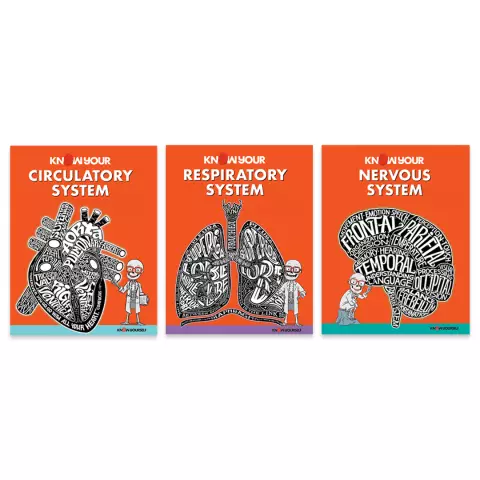- Author Rachel Wainwright wainwright@abchealthonline.com.
- Public 2023-12-15 07:39.
- Last modified 2025-11-02 20:14.
Hyperhydration

Hyperhydration is an excess volume of water contained in the body or in its individual parts, a special form of disturbance in the body's water-salt balance. Clinical manifestations of overhydration are edema of body tissues, lungs, brain, excessive accumulation of fluid in the abdominal cavity - ascites. Some conditions of overhydration are life-critical.
The human body is composed to a certain extent of water, the volume of which changes with age. Thus, the volume of water in the body of a newborn reaches 75%, while the body of an elderly person consists of only 55% of water. Water in the human body is distributed over the fluid sectors: the intracellular space contains about 60% of all water in the body, the rest of the water is distributed in the extracellular space - intercellular space, blood plasma, transcellular fluid (gastrointestinal tract, spinal canal, eye chambers, urinary ducts, adrenal tubules).
The body's water balance is maintained by a comparable volume of incoming and outgoing fluid at the same time. The daily norm of body fluid (2.5 liters) comes with food (about 1 liter), drinks (about 1.5 liters), as well as in the form of an oxidizing liquid that is formed during the oxidation of fats (about 0.3 - 0, 4 l). The liquid is excreted from the body by evaporation (with then about 0.6 l of fluid is excreted), through the kidneys (about 1.5 l of fluid is excreted), with exhaled air (excretion of 0.4 l of fluid per day), with feces (up to 0, 2 liters per day).
When the water balance is disturbed (overhydration), not only the volume of fluid contained in the body changes, but also the level of mineral content in the body changes. An excessive change in the concentration of sodium, potassium and other minerals (electrolytes) during overhydration can lead to hyponatremia, hypokalemia, and general electrolyte imbalance in the body.
Overhydration can occur in the body due to excessive fluid intake or insufficient fluid excretion by the body. In some cases with diagnosed overhydration, both factors are present in the patient's body. Hyperhydration can develop both under the influence of external factors, and as a result of impaired functioning of organs, diseases of the body.
Hyperhydration of the body: causes, types of dyshidria
The main reasons for overhydration of the body are:
- Excessive introduction of fluid into the body (water intoxication), which is characterized by a low salt content or their complete absence. Most often, this condition develops with repeated enteral administration of fluid into the body (excessive fluid intake for certain types of mental disorders, excessive water intake into the gastrointestinal tract during gastric lavage);
- Decreased renal excretory function in renal failure;
- Insufficiency of blood circulation with the formation of edema;
- Increased levels of ADH (antidiuretic hormone);
- Congestive heart failure;
- Cirrhosis of the liver.
The main types of body overhydration include:
- Isoosmolar hyperhydration of the body - an increase in the level of extracellular fluid with normal osmolarity. As a rule, this violation is of a short-term nature and is quickly eliminated by the body under the condition of normal functioning of the systems that maintain its water balance;
- Hypoosmolar hyperhydration - this type of hyperhydration develops simultaneously in the cellular and intercellular spaces, is characterized by a radical violation of the acid-base and ionic balance, as well as the membrane potential of cellular structures;
- Hyperosmolar hyperhydration is a form of hyperhydration that develops during the forced use of sea water as drinking water, in which there is a rapid increase in the concentration of electrolytes.
Overhydration: symptoms of impairment
With overhydration, symptoms manifest as follows:
- Changes in the volume of circulating blood;
- Increased blood pressure;
- Violation of heart rhythms;
- The development of edema;
- Violation of urine excretion (diuresis) - polyuria, anuria;
- Intoxication of the body, vomiting, diarrhea;
- Disorders of a neuropsychiatric nature - convulsions, apathy, impaired consciousness, lethargy.
In rare cases, with overhydration, skin redness, an increase in body temperature, sleep disturbances, and aversion to food are observed.
With overhydration, the symptoms are subject to careful analysis to determine the form of dyshidria and the appointment of appropriate treatment.
The main consequences of overhydration
The main consequences of overhydration include:
- The development of tissue edema - pathological processes characterized by an increase in fluid content in the extravascular space of the body;
- Pulmonary edema is a condition in which an increased fluid level is diagnosed in the pulmonary interstitium;
- Cerebral edema is a pathological process characterized by excessive accumulation of fluid in the cells of the brain and spinal cord;
- Hyponatremia is one of the symptoms of overhydration, characterized by a decrease in the concentration of sodium ions in the blood plasma (level below 135 mmol / l);
- Hypokalemia - a low level of potassium in the blood, provoked by a low amount of potassium intake into the body, its migration into tissue cells, its increased excretion;
- Rapid weight gain.
Overhydration treatment

The main risk group for the development of overhydration of the body are patients with renal failure, heart failure, other diseases of the kidneys and liver, as well as people subject to increased physical exertion, as well as those who follow a strict diet. In the treatment of overhydration, the causes of imbalance in the body's water balance play a key role.
Minor overhydration does not require additional medical correction. With the normal functioning of all systems, the body independently copes with excess fluid.
If overhydration is detected, symptoms of which include headache, irritability, confusion, dizziness, patients are advised to limit fluid intake.
In severe cases of overhydration, drug treatment is used (diuretics are prescribed), aimed at restoring the body's water and electrolyte balance. In rare cases of overhydration, symptomatic treatment is prescribed. With complex forms of overhydration, patients are prescribed hemodialysis.
When you follow a diet, the body lacks minerals. Patients are advised to reduce their water intake, the excess of which can lead to a decrease in electrolyte levels in the body. In order to avoid overhydration with increased physical activity, diets are not recommended to completely eliminate salt. To replenish the water and electrolyte balance, it is recommended to use mineral water.
YouTube video related to the article:
The information is generalized and provided for informational purposes only. At the first sign of illness, see your doctor. Self-medication is hazardous to health!






